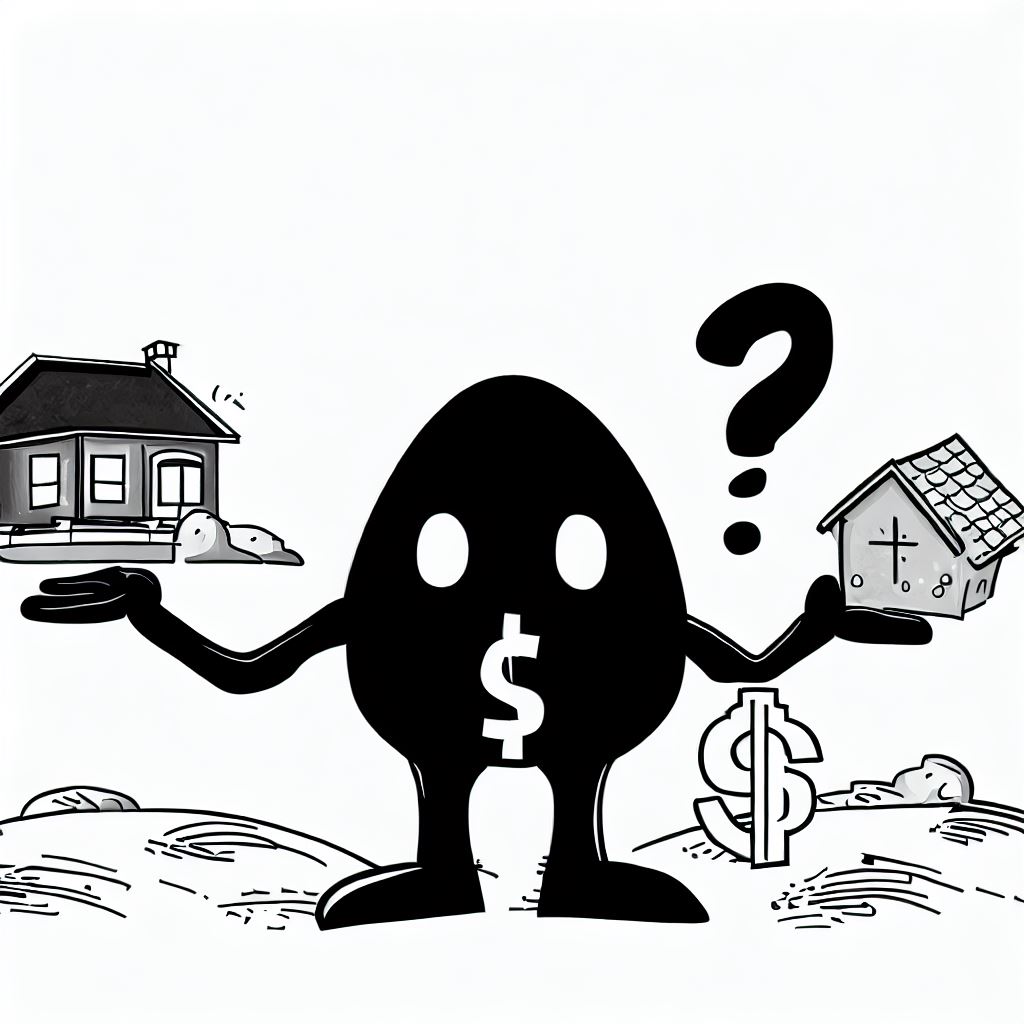Choosing between a purchasing rural land or a rental house hinges on goals and preferences. Land offers dream home potential and sustainability, but with high costs and infrastructure needs. A rental house yields immediate income but lacks personalization and demands maintenance. Assess your long term goals and finances carefully before commiting to a decision.
___________________________________________
“Currently weighing up between buying a 3-hectare rural residential piece of land for 600k (planning to build a dream house in the coming year or so) or purchasing a house for 880k out of the city and renting it out :
3-hectare piece of land:
$600000 (rateable value: S290,000) doesn’t have a dwelling (only allowed one and can’t section)
has solar panels
has rainwater tanks
one of the best views in the city
no sewage
House :
$880000 (rateable value: $580,000)
4 bedrooms
239m² floor
1258m² Land
brick house
possible rental income $500”
(Original question on Reddit)
___________________________________________
Choosing between buying a rural residential piece of land for $600,000 or purchasing a house for $880,000 to rent out depends on your financial goals, lifestyle preferences, and investment strategy. Here are some factors to consider for each option:
Buying the 3-hectare Rural Residential Land
Pros of buying rural land
- Dream Home Potential: You can build your dream house on this land with one of the best views in the city, offering a unique and personalised living space. So when you decide it’s time to build that dream home, you already have the first part of the equation sorted: having land to build the home on.
- Sustainability Features: The land already has solar panels and rainwater tanks, potentially reducing utility costs and promoting sustainability. This means in the future, you won’t need to spend additional money on these features as you already have them.
- Land Appreciation Potential: Over time, rural residential land tends to appreciate in value, offering the possibility of a profitable investment when you decide to sell in the future. This means if in the future you decide not to build your dream home on it, you can still sell it for a potential profit.
Cons of buying rural land
- High Initial Cost: While the rateable value is lower, the purchase price is still substantial at $600,000. Building a custom home can add significant expenses. So, the overall cost of building your dream home will be quite significant, and it’s worth planning out the total expected expenses before making this decision.
- Other costs: Infrastructure needs and additional expenses can be a significant consideration when dealing with a large 3-hectare property. You’ll have to invest in essential infrastructure like sewage systems, and managing such extensive land can be both costly and time-consuming. This includes addressing weed and pest control, as well as handling maintenance tasks like fencing. Additionally, there will be other fees, such as council fees when building the home and more, so it’s important to list the total expenses and compare it to your second option of renting a house out.
Purchasing the House to Rent Out
Pros of buying a rental
- Immediate Rental Income: Buying the house for $880,000 and renting it out provides immediate rental income, potentially helping to offset mortgage payments or generate additional cash flow.
- Existing Structure: You won’t need to build a new house, saving time and effort compared to constructing a custom home.
- Lower Initial Investment: While the purchase price is higher, you may require a smaller upfront investment than building a custom home.
Cons of buying a rental
- Limited Personalization: The house may not meet all your dream home criteria, as it’s primarily an investment property.
- Maintenance and Management: As a landlord, you’ll be responsible for property maintenance, management, and dealing with tenant-related issues, which can be time-consuming.
- Rental Income Variability: Rental income can fluctuate based on market conditions, tenant turnover, and maintenance expenses. A decrease in rent could result in negative cashflow.
How do you make an informed choice?
To make an informed choice, take into account your financial goals, timeline, and lifestyle preferences:
- If your priority is to construct your dream home and you’re prepared to invest in the land and subsequent construction, the rural residential land might be the better choice.
- If your primary objectives are generating rental income and building an investment portfolio, purchasing the house to rent out could provide a more immediate return on investment.
Furthermore, conducting a thorough financial analysis is crucial. This should encompass potential rental income, ongoing expenses, and long-term appreciation potential for both options. Don’t hesitate to seek guidance from a financial advisor or real estate expert to ensure your decision aligns effectively with your overall financial strategy.
Hope this helps.
Regards, Clive Fernandes (Financial Adviser)
Director – National Capital
Disclosure: I am the director of National Capital, a KiwiSaver advice firm. The information in this post is only general in nature and is not personalised financial advice. Please contact us if you want financial advice.
